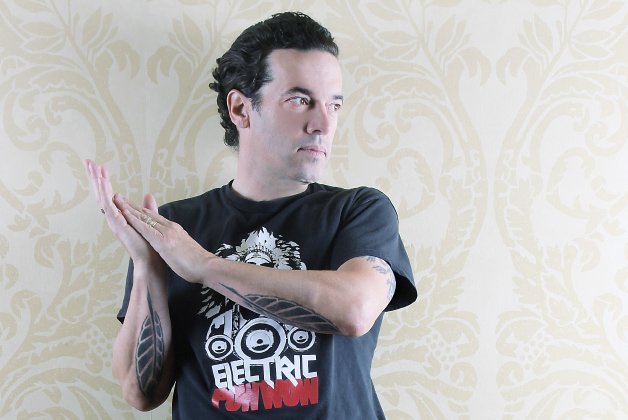
The calendar is set to turn on another year, luckily without the threat of a Mayan apocalypse after the maelstrom that was 2016. Still, for Canada’s Indigenous communities, the events of 2017 against the backdrop of Canada 150 celebrations – and denunciations – were particularly felt.
Inquiry into Missing and Murdered Indigenous Women and Girls
It took the fall of the Harper government and some serious wheeling and dealing on behalf of the current government of Justin Trudeau to finally get this inquiry into the hundreds of lives lost to violence – and police indifference – off the ground. Launched with lots of fanfare, and later encumbered by a fuzzy mandate and numerous resignations and firings of top officials, the inquiry has dashed early high hopes. It’s turning into a tragedy within a tragedy. But many agree a flawed inquiry is better than no inquiry.

R. Jeanette Martin
Strawberry Ceremony for missing and murdered Indigenous women and girls, Toronto police headquarters, February 2015.
Something out of science fiction
Métis author Cherie Dimaline’s book, The Marrow Thieves, won the Governor General’s literary award for young people’s literature. A daring win for a daring Indigenous foray into the world of science fiction and a story that posits an thought-provoking idea: that we’ve lost the ability to dream. Ironically, a scant decade ago a writer like this winning such a prestigious award in a formerly unexplored and “alien” genre would seem like something out of science fiction.
Indian Affairs’ monumental shift
The Liberal government split the responsibilities of Indigenous and Northern Affairs Canada into two: Indigenous Crown Relations and Indigenous Services. Did theTitanic not also split in two toward the end?
The Grey Owling of Joseph Boyden
One of Canada’s premier novelists found himself in a quagmire of controversy after an APTN report questioned the legitimacy of his FirstNations ancestry. The discussion of Boyden’s heritage became a causecélèbre for several months, with differing camps being set up in both the Native and settler communities. Nobody said being Native is easy. Warning: it’s not for everybody.

Kathryn Gaitens
Joseph Boyden.
A case of faux First Nations art
Amanda PL’s planned exhibition at Toronto’s Visions Gallery was cancelled after a protest claiming her style of painting was a direct rip-off of Indigenous artist Norval Morrisseau. Recently, another non-Native artist named Vasiliy Mushyk has received the same response for his similar sense of Morriseau’s Woodlands technique. Definitely not a case of “a rose by any other name would smell as sweet.”
The Cultural Appropriation Prize goes to…
In the spring edition of the Writers Union of Canada magazine WRITE, highlighting Indigenous writing, editor Hal Niedzviecki jokingly suggested an award for writers exploring stories as far away from their own “backgrounds” as possible. He called it The Appropriation Prize. But the joke was on him. After angry emails, tweets and flaming arrows fired his way, he rescinded his attempt at humour and resigned – a few other journos who expressed support for him on Twitter were also forced to resign. Be careful the “background” you speak of – it may have been included in a treaty.
Making history
Kevin Loring was named the first-ever artistic director of the new Indigenous theatre department of the National Arts Centre in Ottawa. His first season is expected to begin in the fall of 2019. He stands atop an artistic pyramid charged with representing some 630 politically, culturally, geographically different First Nations communities from 10 provinces and three territories, and which speak more than 50 separate languages and dialects. That should be fun.
Pipeline schemers and dreamers
Governments both in Canada and the United States seem determined to run pipelines carrying oil through First Nations territory, regardless of the environmental or Indigenous response. This is not a good idea for a number of reasons, including a less obvious one. If there’s an oil spill, all the already bad water in these Indigenous communities might pollute the oil.
Ontario curriculum change-up
Indigenous history and culture studies will become mandatory in the Ontario school curriculum. Students will learn all about things many Native students who attended residential schools weren’t historically allowed to learn about their own culture.
Empty residential schools apology in Newfoundland & Labrador
Justin Trudeau apologized for another travesty of history, this time to the residential school survivors in the Inuit communities on the East Coast, who were left out of Stephen Harper’s original apology in 2008. Not all were willing to accept it, however.
Seal meat alert
Ku-kum Kitchen, a Toronto Indigenous restaurant, got in hot water recently when chef Joseph Shawana decided to serve seal tartare. Almost immediately, a petition was set up by vegan org Care 2 demanding the restaurant take it off the menu. Meanwhile, the Inuit, for whom the meat consists of most of their traditional diet, replied, “What’s vegan?”
Not-so-vaunted fathers of Confederation
Statues of prominent historical Canadians have been under attack, specifically Sir John A. Macdonald and Halifax’s Edward Cornwallis, vaunted founders of Canada, yet two men with suspicious track records. Many people want their statues torn down or removed. Indeed, both men were stone-deaf to the needs of First Nations people.

Notman Studio/Library and Archives Canada
John A. Macdonald.
Donald Trump’s long-lost sister in Canada’s Senate
I am not sure what shoe size Senator Lynn Beyak wears, but no doubt it is at least the same size as her mouth, since she spent a good part of the summer with her foot there. Among many of her questionable suggestions: that First Nations people should trade in their status cards and stop all this bellyaching about blame and guilt and become Canadian citizens, which in fact they already are.
Drew Hayden Taylor is an award-winning playwright and novelist from Curve Lake First Nation near Peterborough.
news@nowtoronto.com | @nowtoronto
Updated on Thursday, December 21, 10:30 am: An earlier version of this article misstated the Writers Guild of Canada’s involvement in the Hal Niedzviecki controversy.












